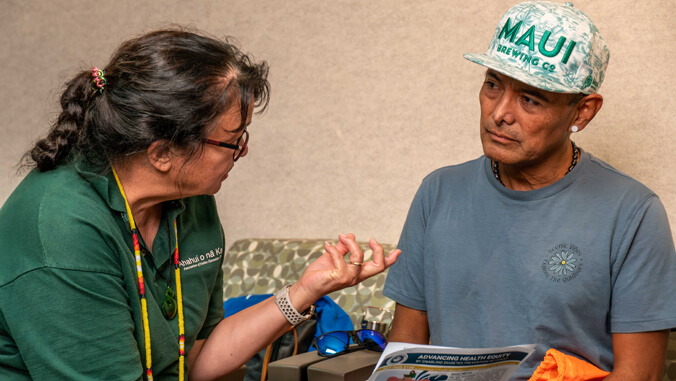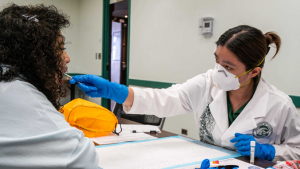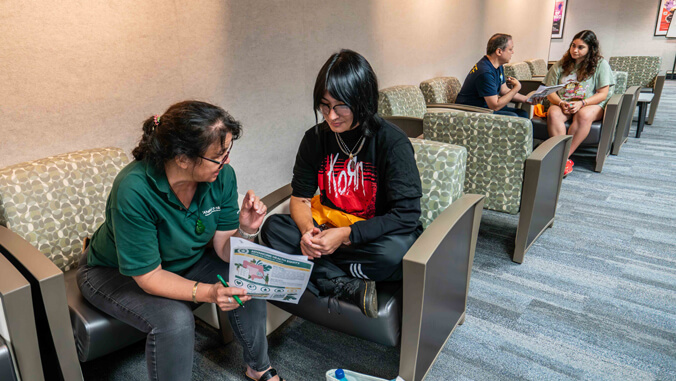
University of Hawaiʻi researchers expanded their groundbreaking Maui Wildfire Exposure Study (MauiWES) on November 23, hosting its first community event away from Maui and welcoming children over 10 to participate in the critical long-term health monitoring project.

MauiWES drew participants to the UH Mānoa Campus Center, targeting wildfire survivors who have relocated from Maui, including several UH students. According to UH Economic Research Organization (UHERO) Professor Ruben Juarez, who is one of the study’s leads, approximately 15–20% of those affected by the 2023 Maui wildfires are no longer living on Maui. This event was held to accommodate those who have relocated to Oʻahu.
“Our goal is to ensure we leave no one behind,” Juarez said. “We know some participants have relocated, and we wanted to provide an opportunity for them to participate in our critical research.”

The study, which recently received an additional $2.3 million in state funding, has opened enrollment to children aged 10 and older. Researchers are particularly focused on understanding the potential long-term health consequences for younger survivors. Juarez emphasized the significant approach of connecting participants directly with mental and physical health services.
“Our study is not just about gathering data—it’s about creating a direct pathway to healing,” Juarez said. “We’re not only identifying health challenges but immediately connecting survivors to the services they need.”

The research team is planning additional events in Wailuku and Lahaina in December. By mid-December, they expect to reach their original goal of 2,000 participants. Starting in January 2025, the study will begin individual follow-up sessions for its early participants, tracking health impacts one year after their initial tests.
This public impact research project is the result of an ongoing partnership among UHERO, which is housed in the College of Social Sciences, John A. Burns School of Medicine and UH Maui College.


